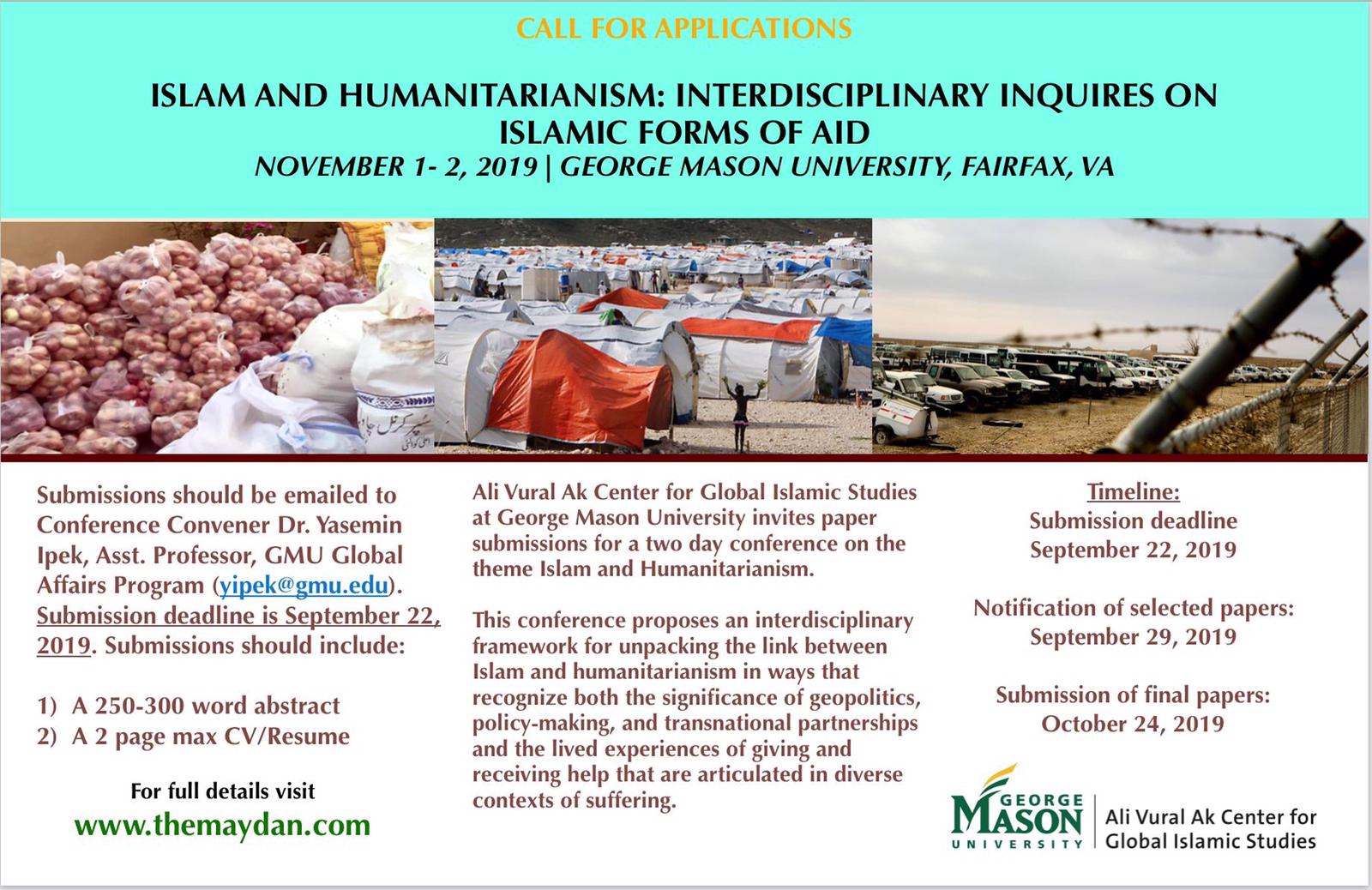Islam and Humanitarianism: Interdisciplinary Inquiries on Islamic Forms of Aid
1-2 November 2019
George Mason University, Fairfax, VA
Ali Vural Ak Center for Global Islamic Studies at George Mason Univeresity invites paper submissions for a two day conference on the theme Islam and Humanitarianism. This conference proposes an interdisciplinary framework for unpacking the link between Islam and humanitarianism in ways that recognize both the significance of geopolitics, policy-making, and transnational partnerships and the lived experiences of giving and recieving help that are articulated in diverse contexts of suffering.
Submissions should be emailed to Conference Convener Dr. Yasemin Ipek, Asst. Professor, GMU Global Affairs Program (yipek@gmu.edu). Submission deadline is 22 September 2019. Submissions should include:
1. A 250-350 word abstract
2. A 2 page max CV/Resume
Timeline:
Submission deadline September 22, 2019
Notification of selected papers: September 29, 2019
Submission of final papers: October 24, 2019
For full details, visit: www.themaydan.com
